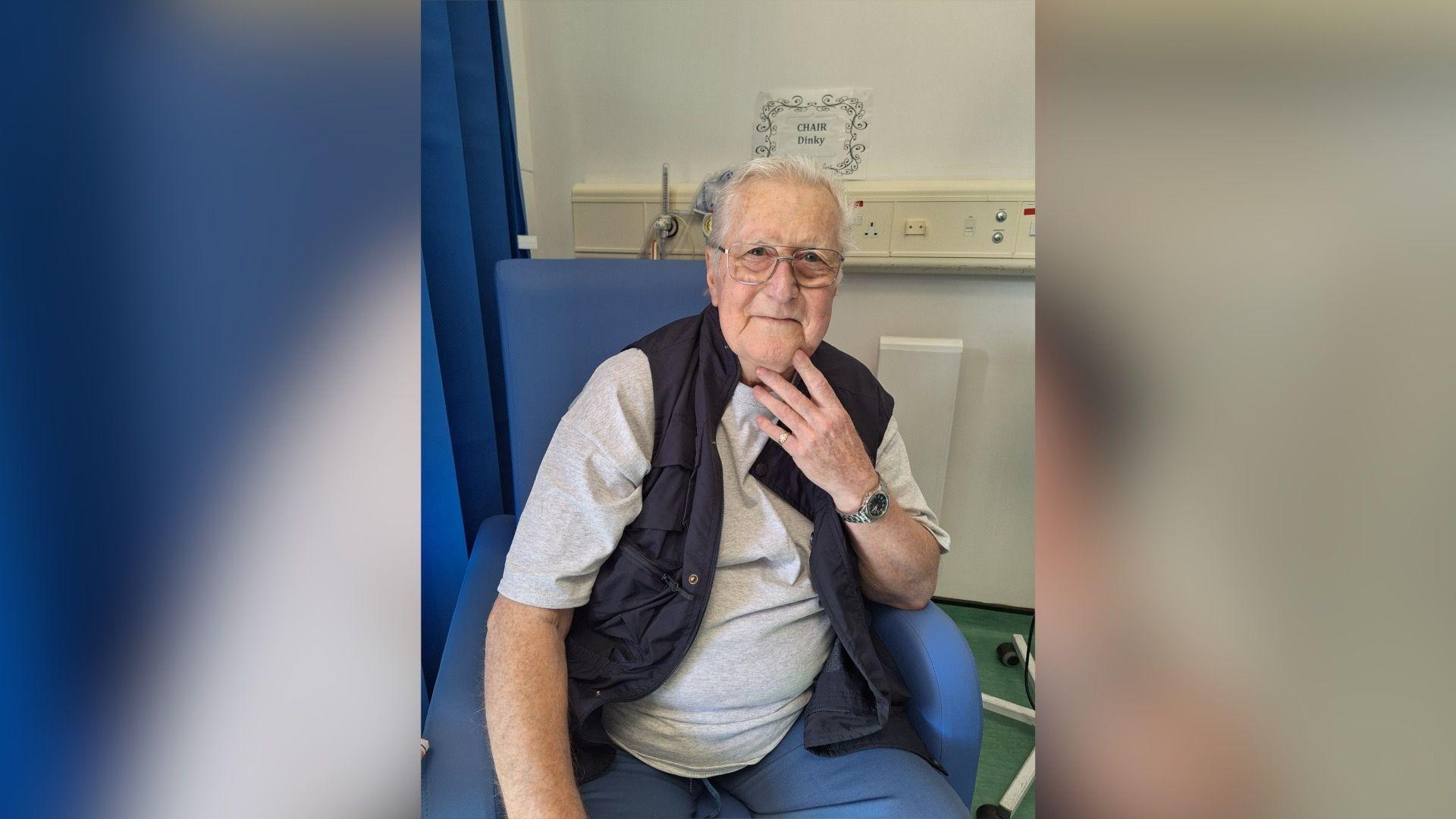Bomb disposal expert aims to save more lives with cancer research
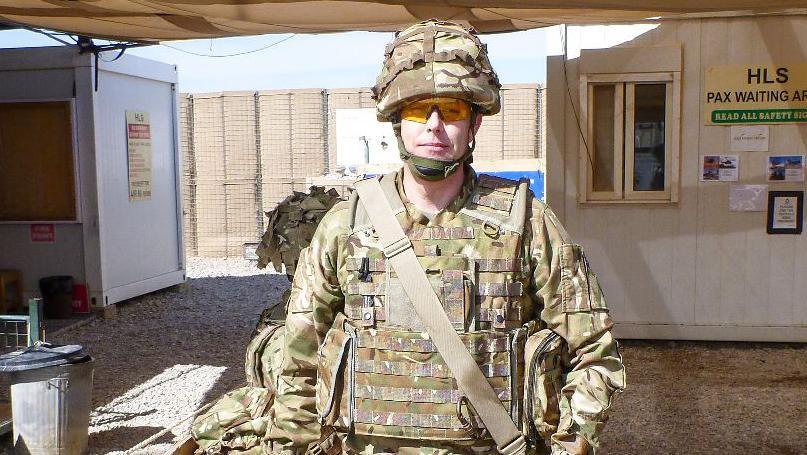
In 32 years as an Army explosives expert, Dr Gareth Collett oversaw the disposal of more than 75,000 IRA, Al-Qaeda and Taliban devices
- Published
A bomb disposal expert made more than 75,000 devices safe during a 30-year career that saw him serve in Northern Ireland, the Balkans, Iraq and Afghanistan.
Brigadeer Gareth Collett protected countless lives in his work, and he is now aiming to save hundreds more with research into the urological cancers he believes are caused by the chemicals contained in high explosives.
A senior University of Wales Trinity Saint David lecturer, his research work is partly-driven by his own bladder cancer, which he is now in remission for.
The Ministry of Defence (MoD) said it takes the safety of its personnel very seriously, and will consider the research.
'My dad was treated like a nuclear guinea pig'
- Published30 May 2021
At least 180 aircrew pursuing MoD after cancer diagnoses
- Published2 July
"Have you heard about Julie? Bob has bladder cancer, Chris has something similar."
This was the kind of anecdotal evidence Dr Collett recalled hearing.
It was around 2015, and there were more and more stories up until his own diagnosis for bladder cancer in 2023.
The lecturer then started contacting former colleagues, and found a five-fold disparity in the instances of this type of cancer between explosives handlers and the general UK population.
"Only 2,300 explosives experts have successfully qualified through the British armed forces since 1970," he said.
"We were able to reach 688, of whom, 44 had developed very specific forms of cancer, 12 of which were bladder cancer.
"That's an average of 15%. Cancer Research UK figures tell us that of a similar aged cohort, maybe 3% would have contracted these conditions."
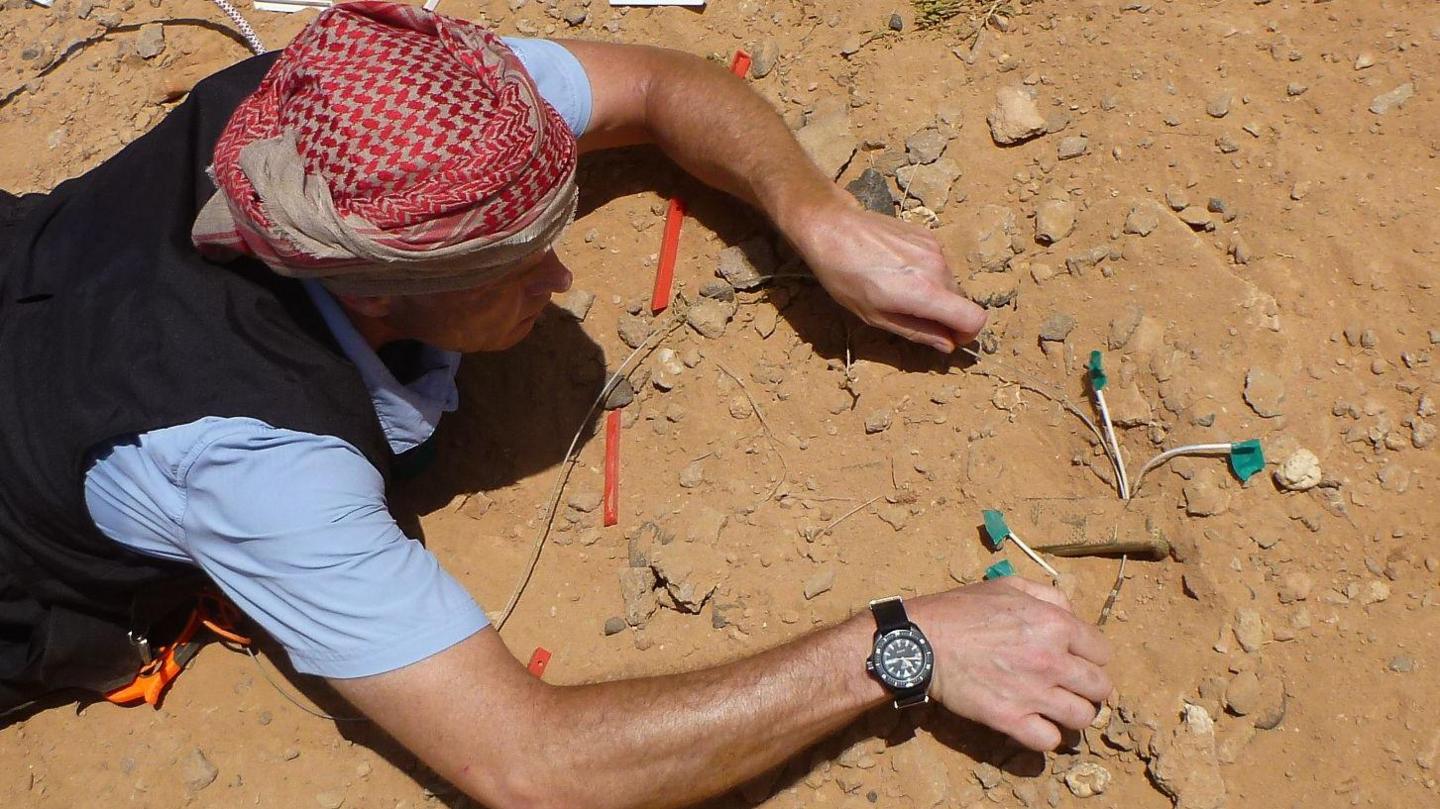
Dr Collett trained people to clear Improvised Explosive Devices (IEDs) in Afghanistan
Born in 1966 with a mother from Brecon, Powys, and dad from Salisbury, Dr Collett grew up in Newcastle-upon-Tyne.
He first became interested in bomb disposal after his family's shopping trip to London was hastily cancelled because of the IRA's 1982 bombing of Hyde and Regent's Parks.
After studying at Welbeck College and the Royal Military Academy, Sandhurst, he was among the 8% to qualify in bomb disposal.
"There are two reasons for the attrition rate - firstly you have to sit around 50 exams in two years," he said.
"Because, one mistake... you don't just get marked down, you get blown up.
"Secondly, there's a massively high level of vetting, because part of knowing how to defuse a bomb is knowing how to make it in the first place, so they have to ensure they're not creating a potential bomber in their own academy."
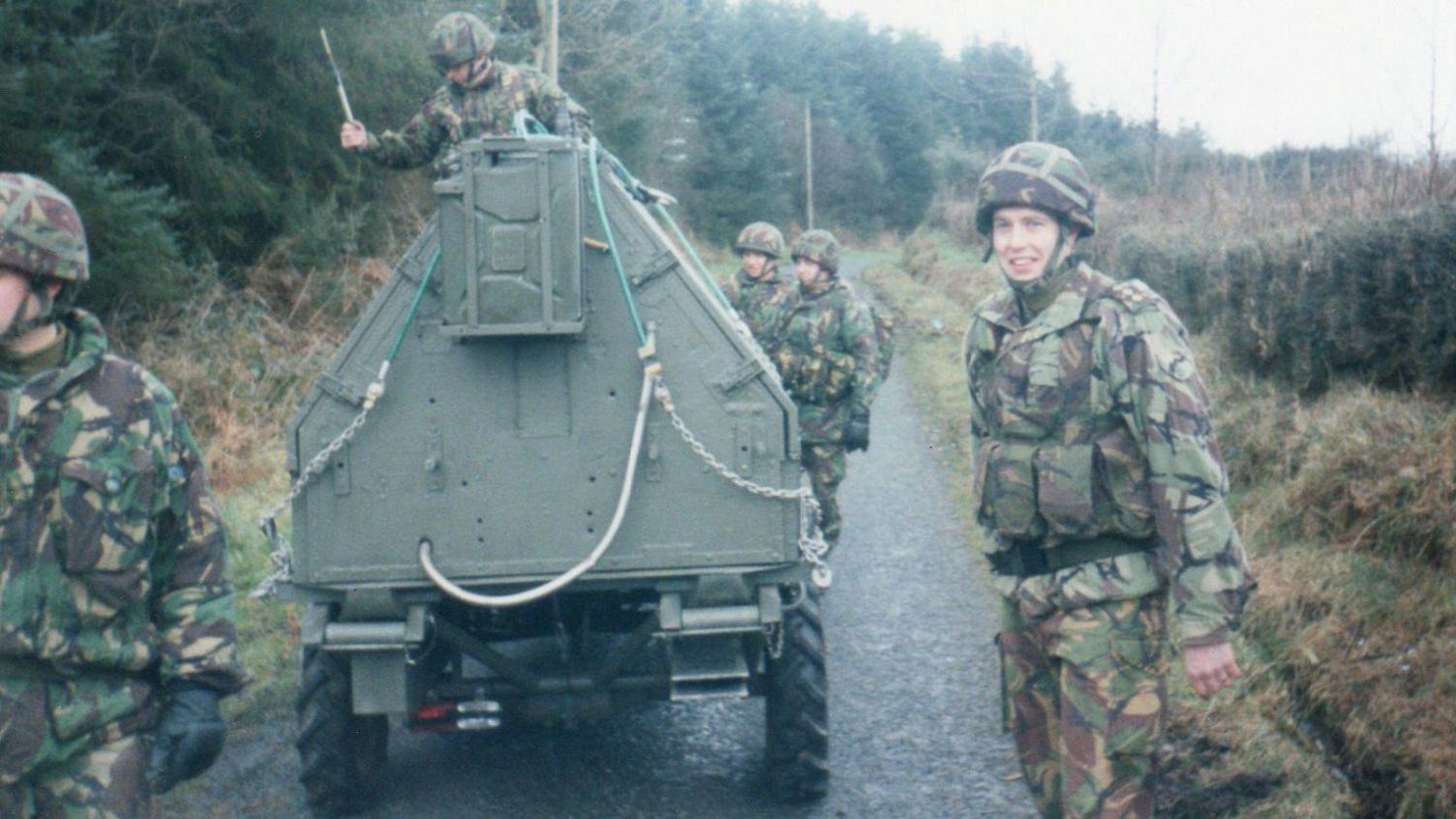
Gareth served in County Armagh, Northern Ireland, during The Troubles - he says bomb disposal experts had the highest price on their head
His first active service came in Northern Ireland in 1987, where he said bombs made by the Provisional IRA were "built to an incredibly high standard".
"On the one hand that meant that, had they exploded, they could have caused an enormous amount of devastation," he said.
"But from my point of view, being able to understand their workmanship made them comparatively easy to deal with.
"I used Rudyard Kipling's poem, 'Six Honest Men' - What is it? Where is it? When was it laid? How was it laid? Who laid it? Why was it laid?
"If you couldn't identify a target, it was probably you, because bomb disposal expert's heads were more highly-prized amongst the IRA than any other British servicemen."
He said those laying Improvised Explosive Devices (IEDs) in Iraq and Afghanistan did not have the same level of expertise, and seemed to value their own lives a lot less.
"So they'd be wired in a myriad of homespun ways, which must have made them equally as dangerous for them to construct as they were for us to defuse," he added.
Attached to the US Army in 2006, his team dealt with 67,000 IEDs in this time alone.
Throughout this time his greatest friends were the sniffer dogs.
"Labradors were good, but by far the best were Malinois," he said.
"Much better than any electronic detector, because - as the insurgents adapted - the dogs could learn a new smell before scientists had even got their pencils out of their pockets.
"They could sniff out a bomb from a safe distance, and would just sit down until their handler could navigate a way to come over and inspect."
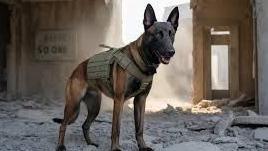
The Malinois, also known as the Belgian Shepherd, is believed to be the best explosives sniffer dog, because it is both more accurate and adaptable than any man-made device
Dr Collett suffered Post Traumatic Stress Disorder, external, mostly as a result of having to exhume a mass grave in Kosovo in 1999, where he experienced sights and smells which he says will never leave him.
As a result, he retired from the British Army in 2018.
In 2013 he was awarded a CBE, for his life-saving services in Afghanistan.
At his investiture, he was astonished that the late Queen remembered him.
"In my dim and distant past as a young captain, one of my duties was patrolling Royal family visits to Scotland in case of explosives," he said.
"She never forgot a face and remembered me walking around wherever she went.
"She asked me if I thought Corgis would make good sniffer dogs... I told her that their noses might be good enough, but I thought they'd struggle with the long grass."
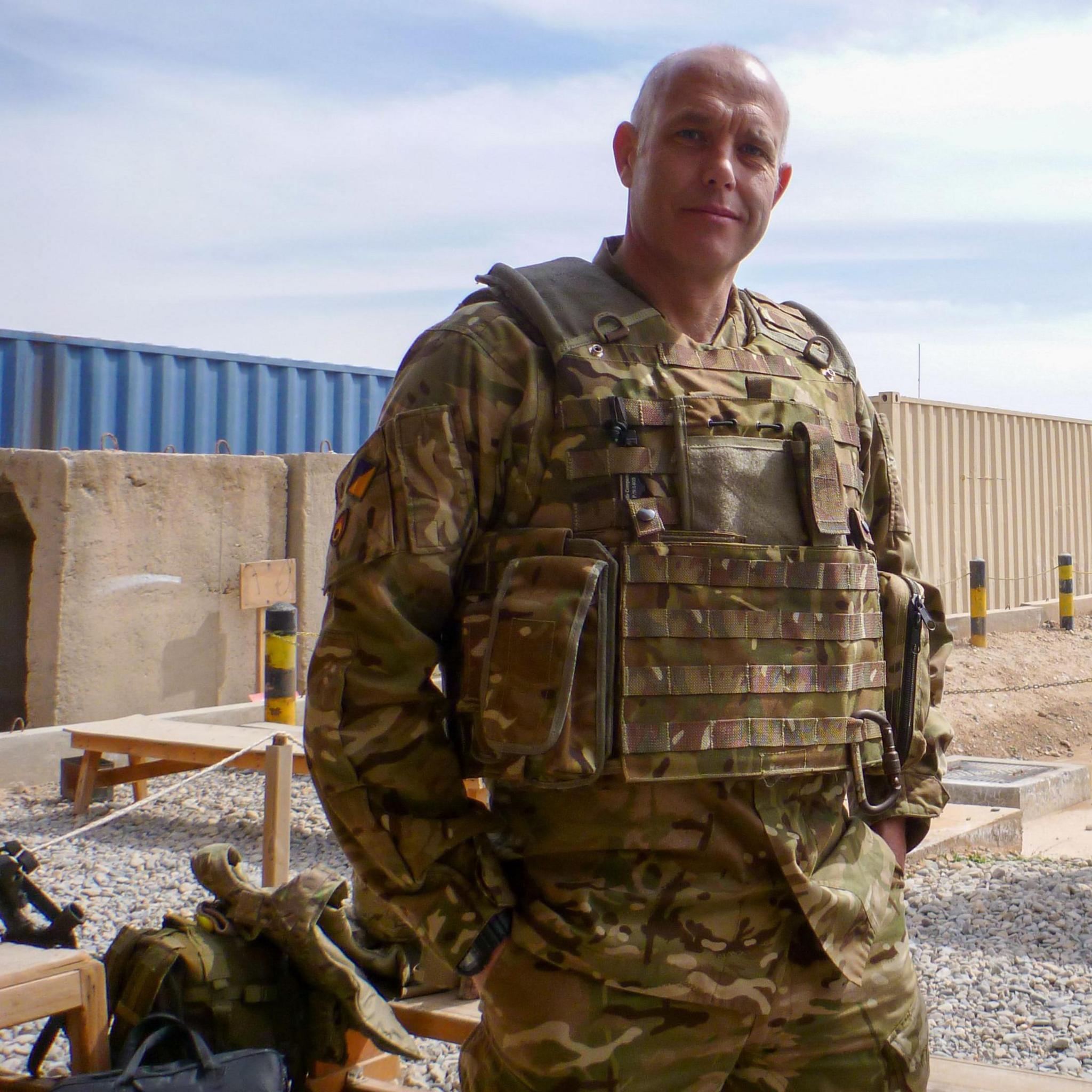
In Iraq and Afghanistan, Dr Collett headed a 147-strong international team to rid the combat zones of IEDs
His team has looked into the effects of nitroaromatic compounds which are in explosives.
"The bladder is like the oil sump of a car," said Dr Collett.
"Anything you ingest, inhale, or absorb through the skin will eventually end up there, and because the bladder never completely empties, that is where the highest concentrations of toxins accumulate."
He said while his sample size is too small to make it categoric, the findings are significant enough to garner the interest of eminent oncologists and urologists.
Also, while he acknowledges it is a long shot, he wants people who made bombs in places such as Northern Ireland to contact him anonymously, so he can hear if they developed cancer.
"Thirty or so years on, I hope that we could come together in a small way to save lives rather than break them," he said.
An MoD spokesman said: "We take the health and safety of our personnel seriously and consider all medical and scientific evidence when assessing the risks to our personnel.
"We will carefully consider this research."
- Published10 February
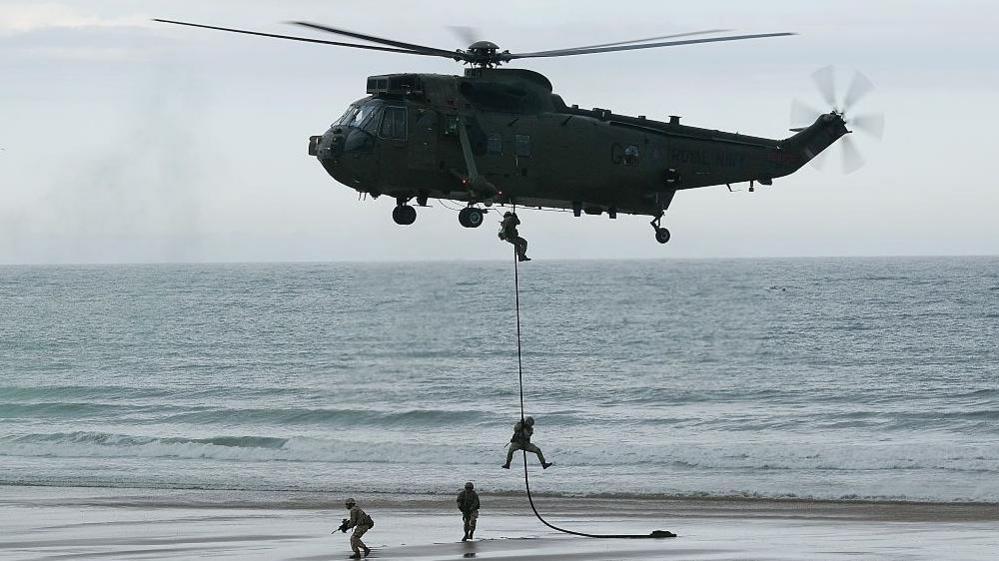
- Published13 June 2024
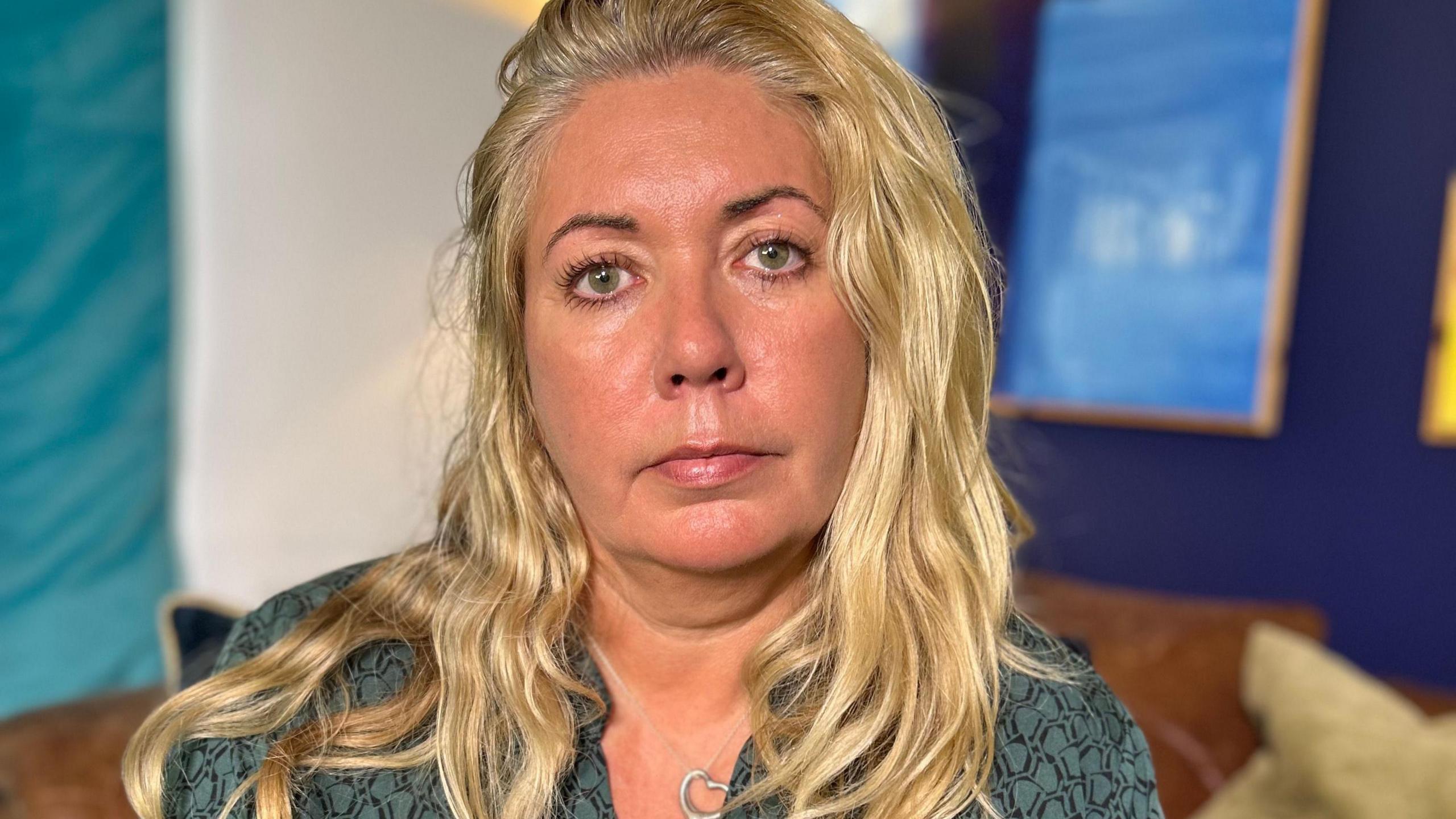
- Published14 October
